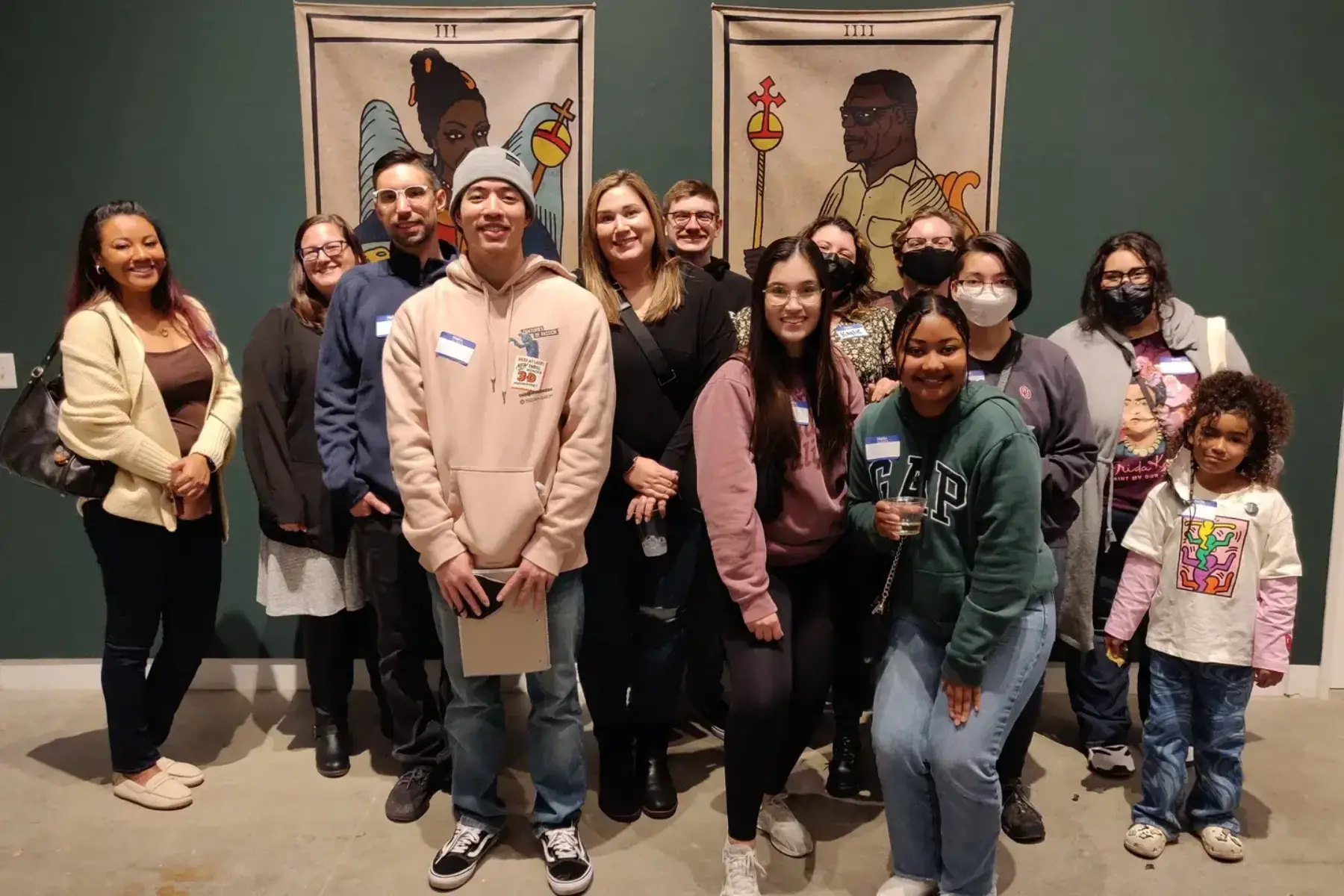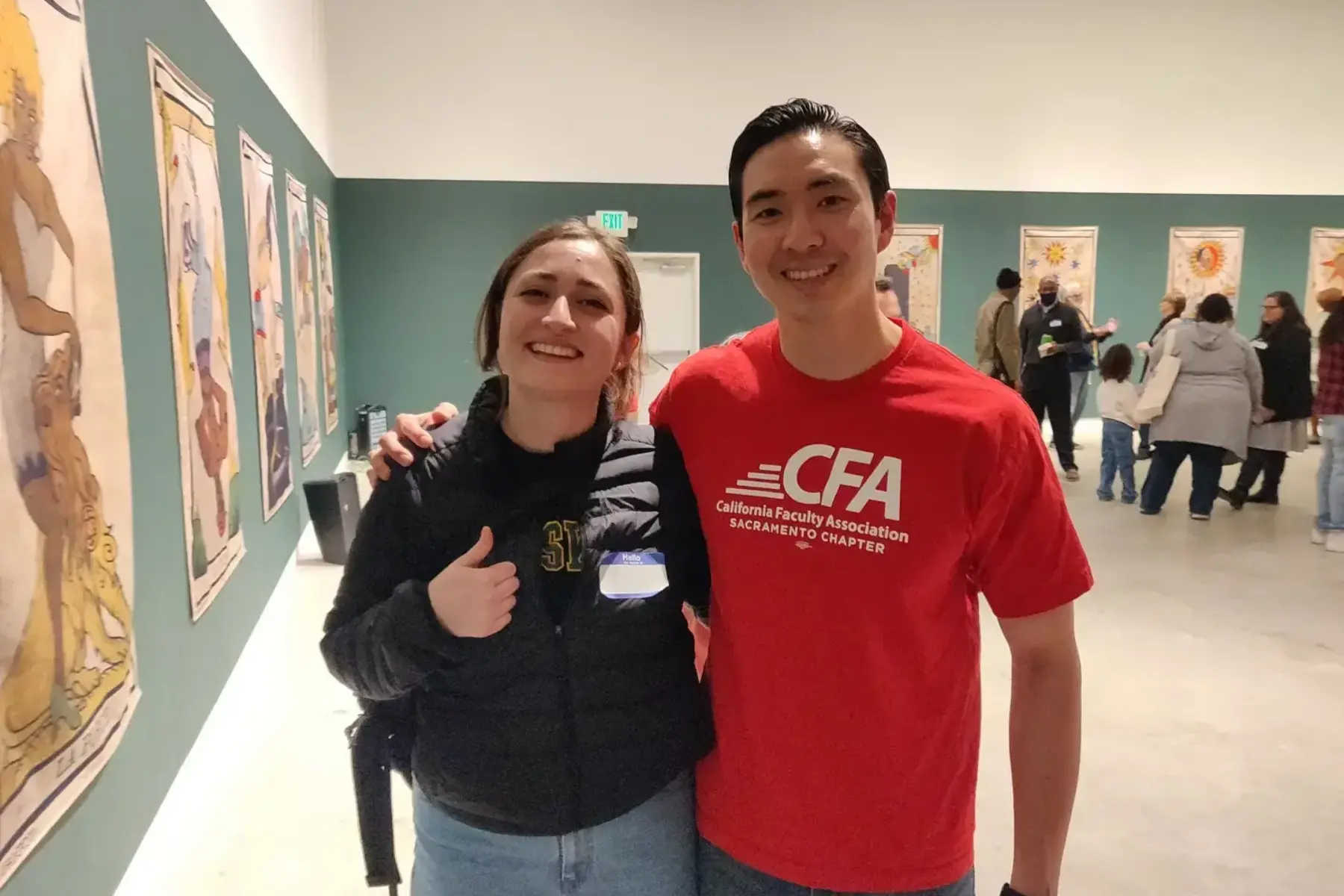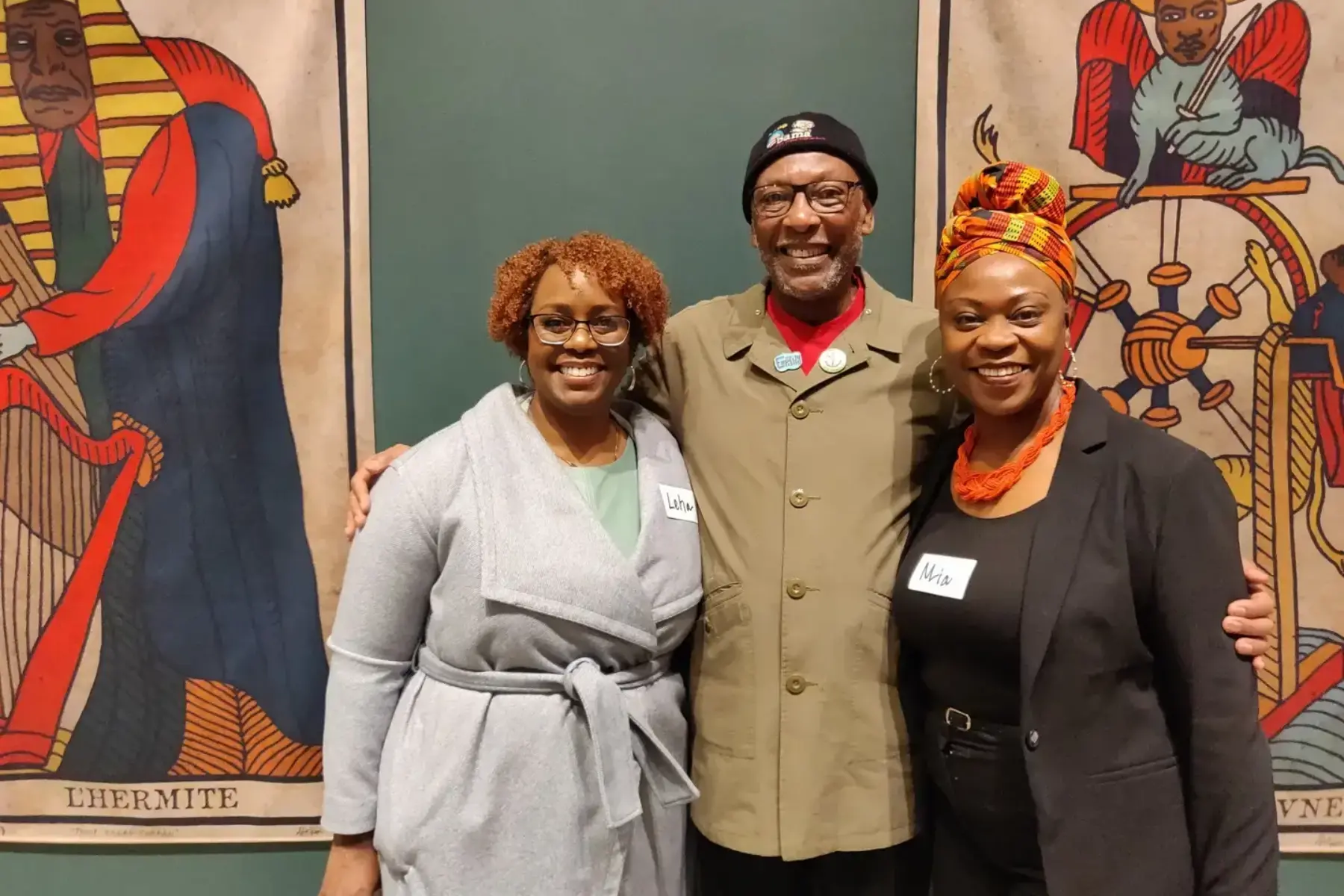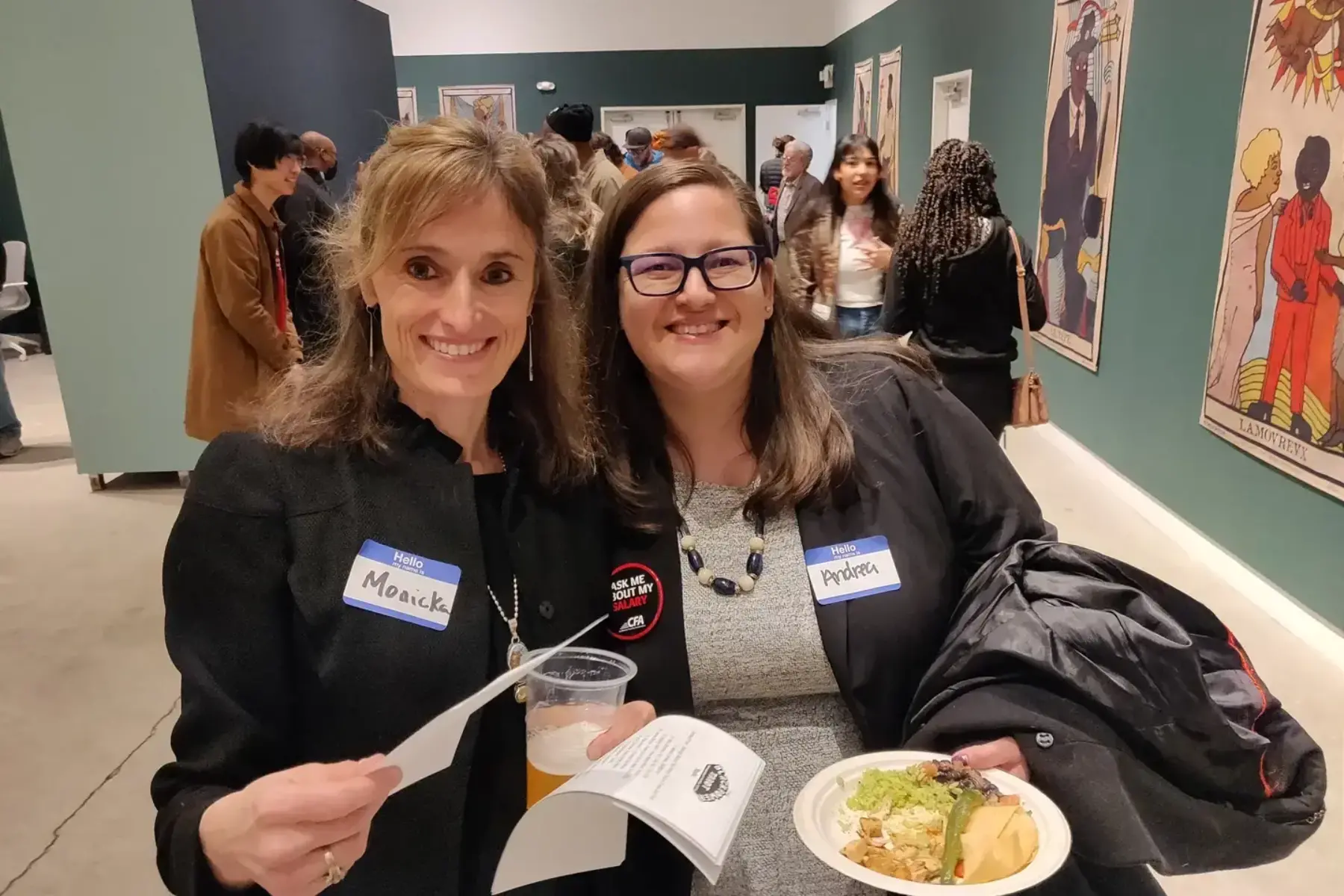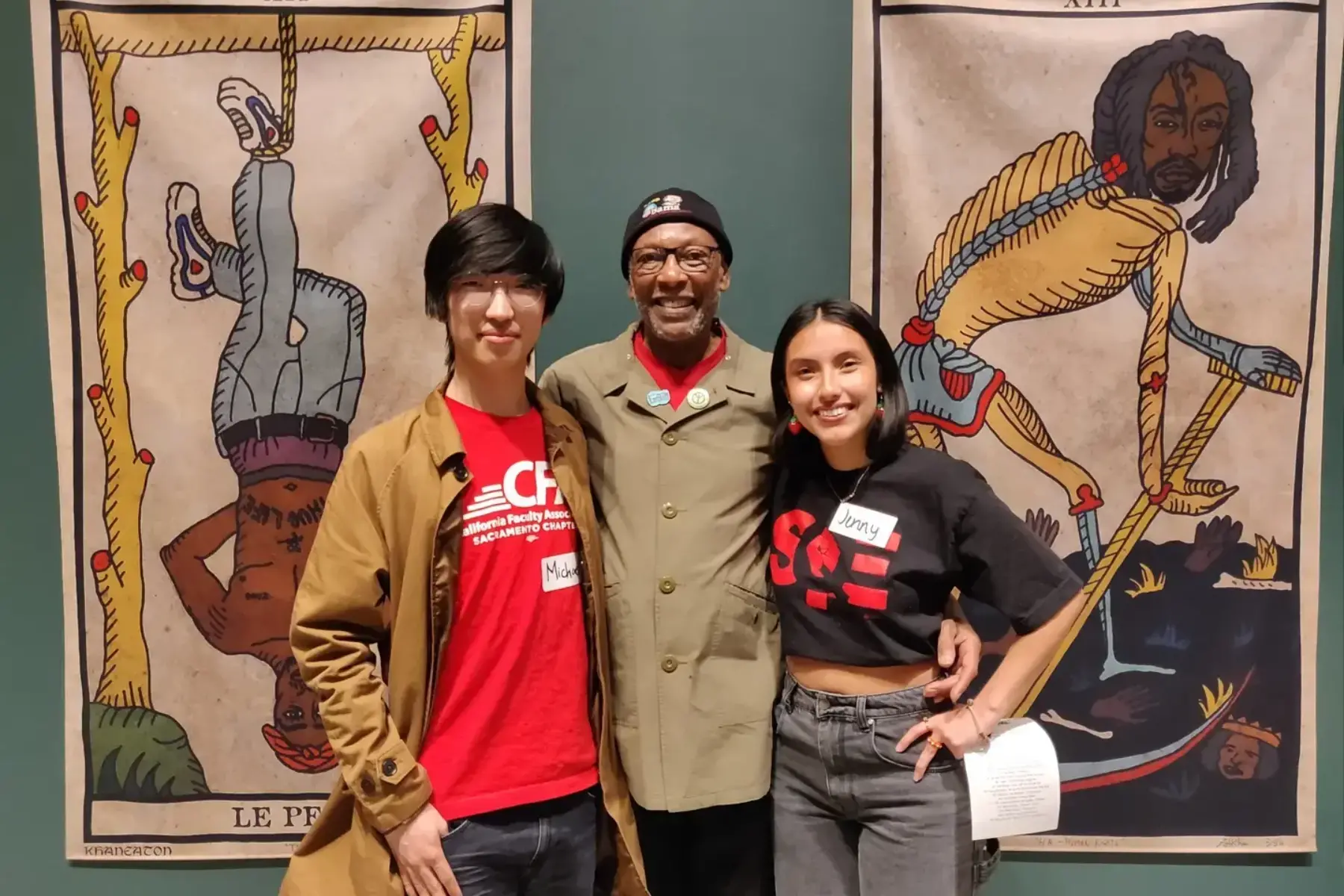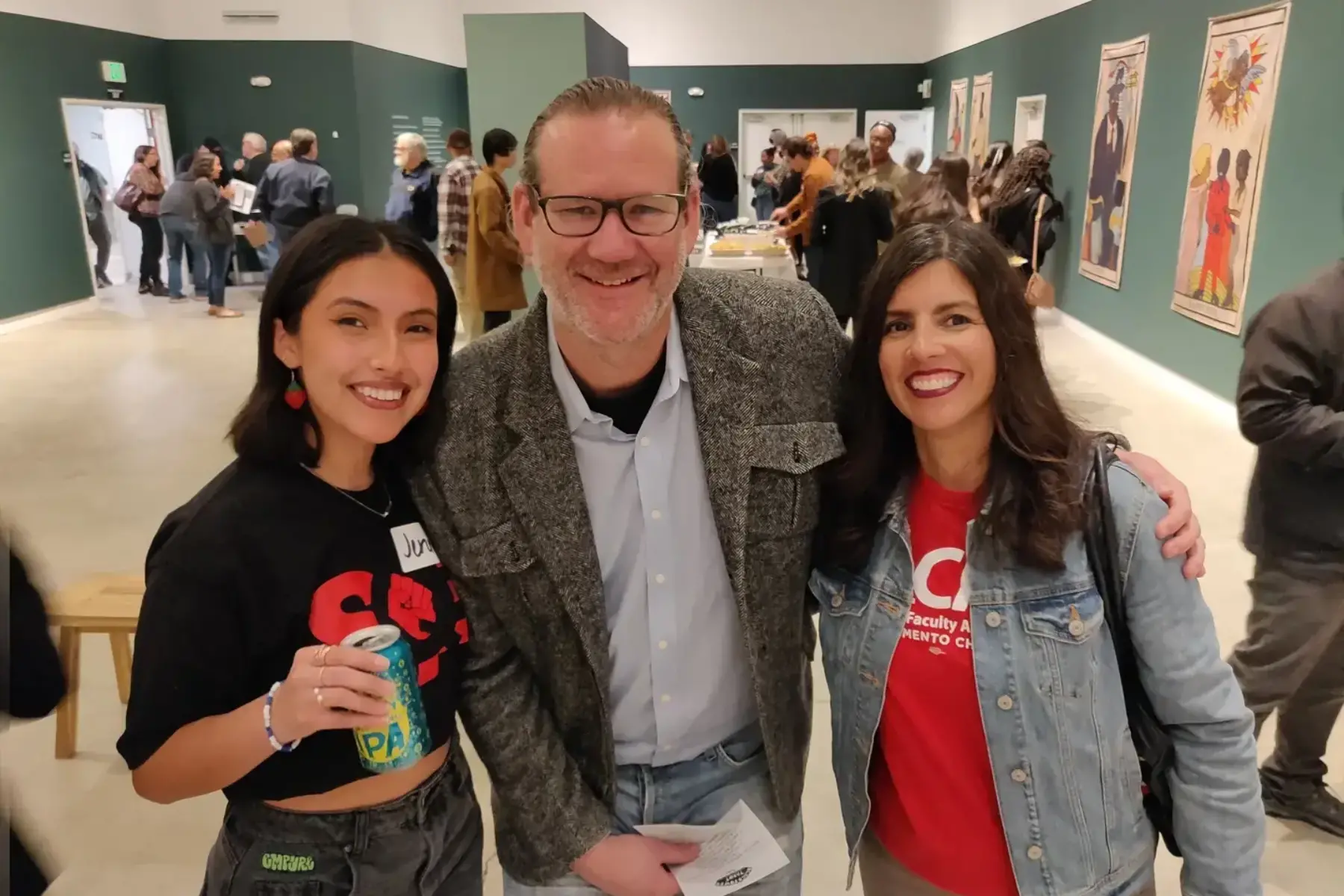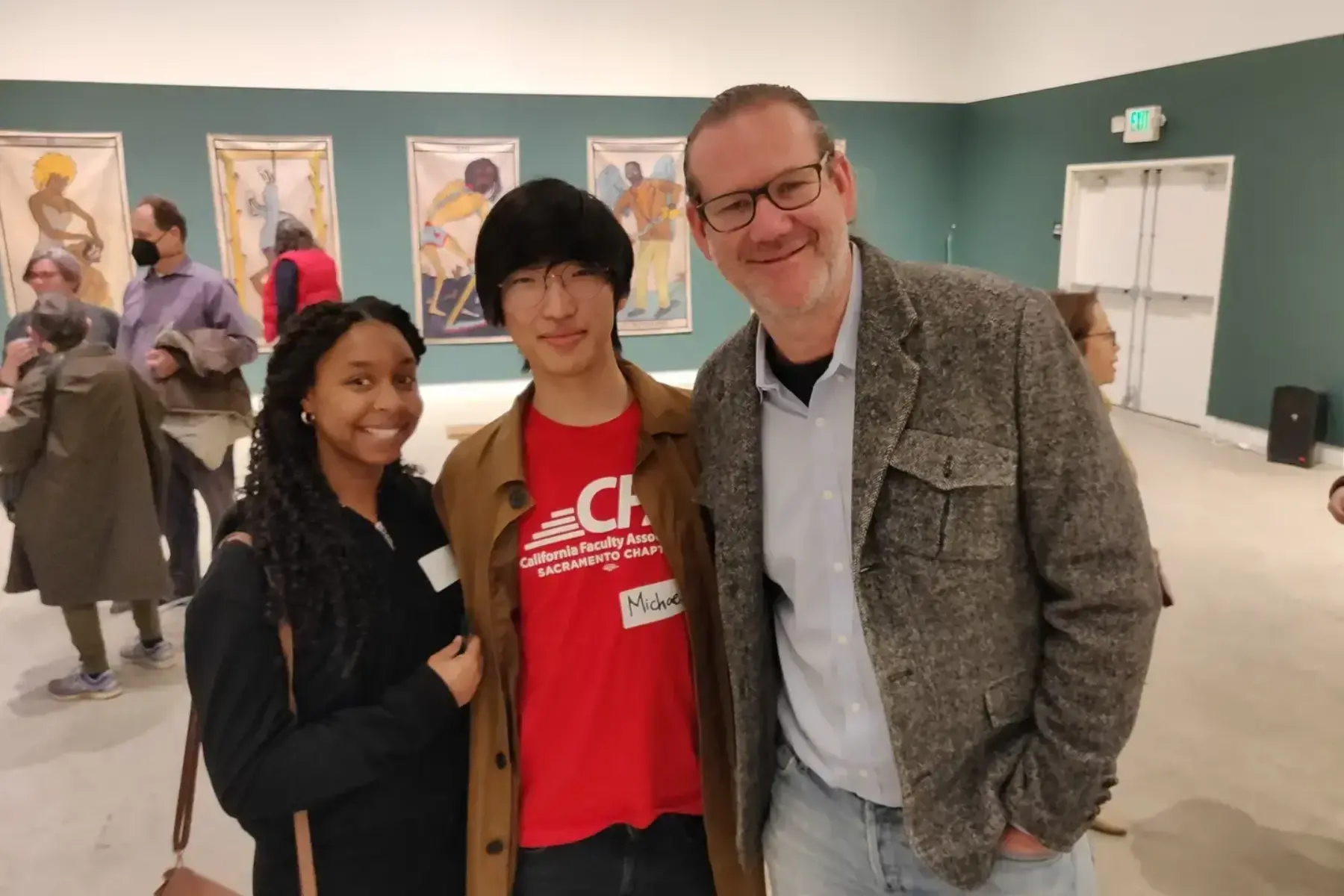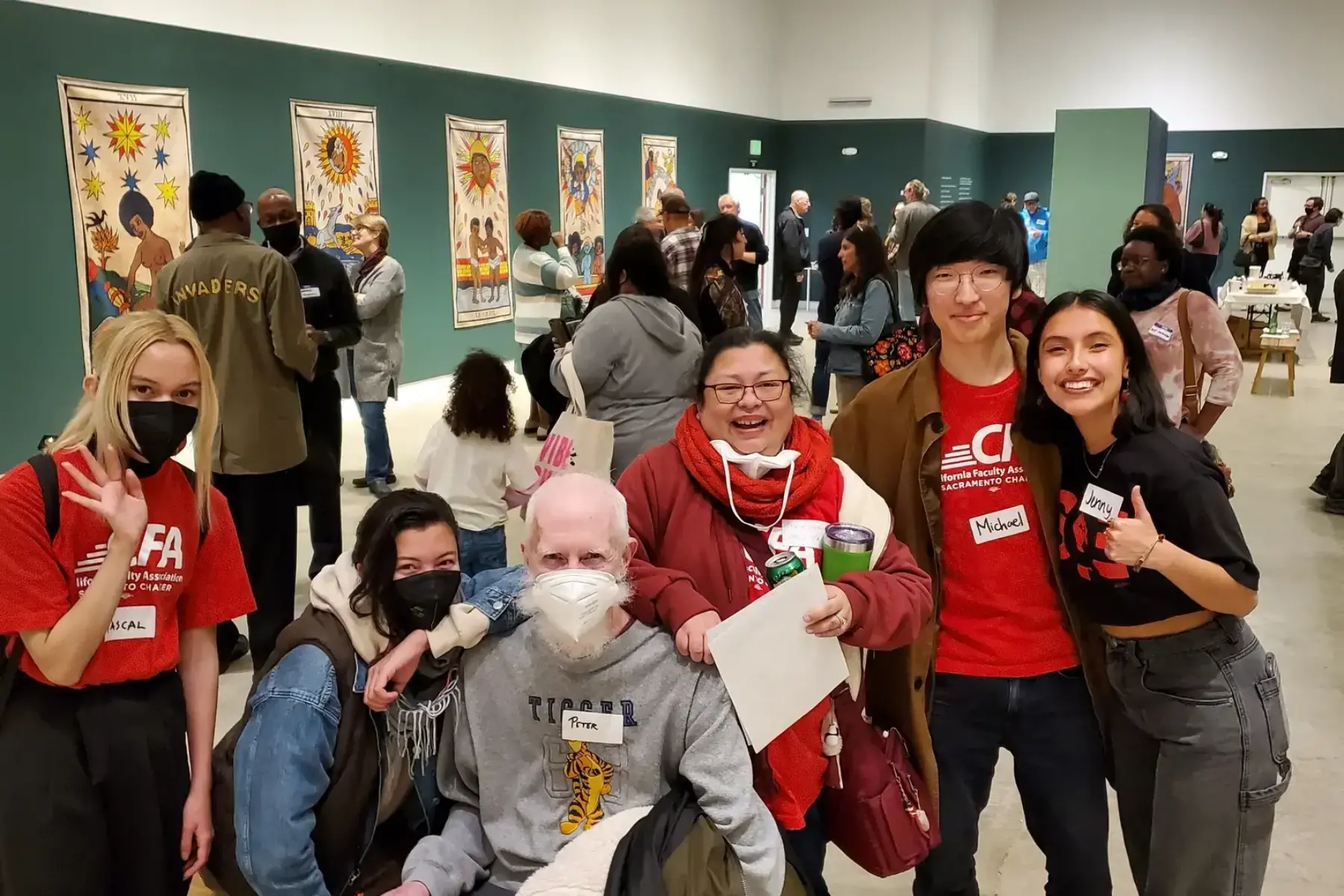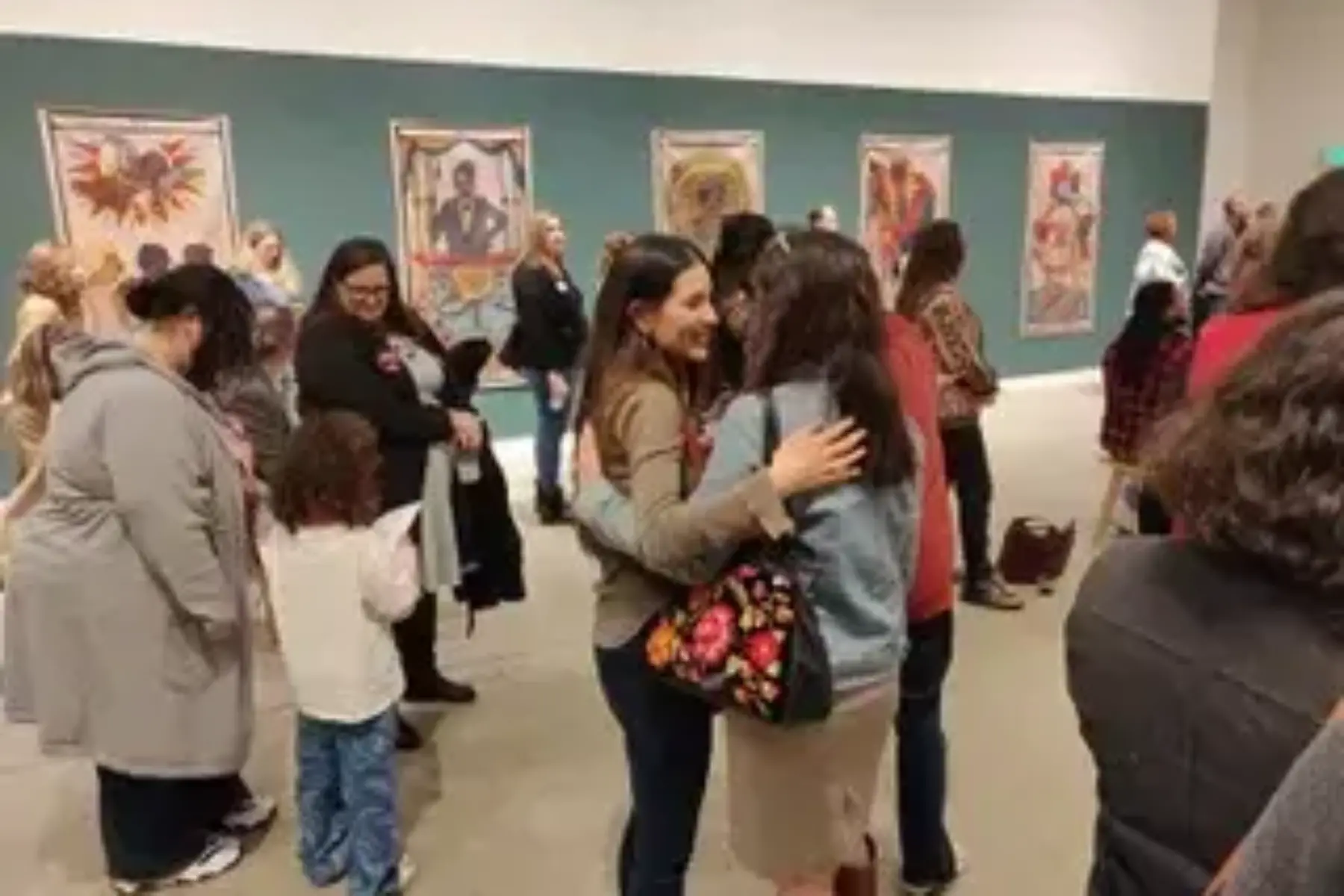CFA Members Organize Black History Events on CSU Campuses
CFA members and chapters are sponsoring and organizing Black history month programming all over the CSU campuses.
At CSU Northridge, the Department of Cinema and Television Arts takes advantage of the state-of-the-art Elaine and Alan Armer Screening Theater.
CFA Northridge chapter president and film professor Nate Thomas explained that “film is not just for entertainment.” In curating the series, Thomas selected movies relevant to current struggles with the hopes that filmgoers “learn from and change their perception of something.”
On February 11th, the department screened the critically acclaimed 1996 release Once Upon A Time… When We Were Colored. The drama is a coming-of-age story set in the segregated South in 1946 and is an emotionally quiet saga played against a tumultuous era in Black communal life.
Starring Phylicia Rashad, Issac Hayes, Al Freeman, Jr., Richard Roundtree, and Bernie Casey, the film was directed by Tim Reid with cinematography by Emmy award-winning John Simmons, American Society of Cinematographers (ASC). Simmons discussed the film in a Q&A session after the showing.
On February 25th, the department screened the 2019 Warner Bros release Just Mercy starring Jamie Foxx and Michael B. Jordon. Producer and department alum Mike Drake discussed the film with director Destin Daniel Cretton.
Just Mercy explores the work of young defense attorney Bryan Stevenson who represents poor people on death row in the South. The film is based on Stevenson’s 2014 eponymous memoir. The film focuses on Stevenson’s work defending Walter McMillian, a Black man wrongfully convicted of the murder of a young white woman.
CFA activist and CSUN librarian Del Williams organized with the CSUN Black House, Rebel Vision: Black Female and Non-Binary Photographers – a Photographic Presentation and Conversation with Tara Pixley.
Tara Pixley, Ph.D., is a queer, Jamaican-American photographer, filmmaker, and media scholar based in Los Angeles, where she is an associate professor of journalism at Loyola Marymount University.
Pixley’s work focuses on Black, Indigenous, people of color (BIPOC) women and non-binary folks in photography, thereby reimaging their representation. Her filmic and photographic work aligns with her scholarship and advocacy, each addressing the intersectionality of race, gender, class, visual rhetoric, and the potential for visual media to reimagine marginalized community representation.
Williams is hopeful that “young black women on campus and BIPOC women realize that photography is an area they can get involved in” and that “non-traditional and marginalized communities see themselves reflected in the work.”
Williams is particularly proud of the slate of exhibitions across campus, noting that speakers attended as audience members of other events.
At Sacramento State CFA, along with the Center on Race, Immigration & Social Justice and Verge Center for the Arts hosted an event entitled “Recognizing Activism at Sacramento State and in the Region.” The February 15th event featured the “Black Power Tarot” art exhibition. In conjunction, John. B. Smith led a discussion with students on activism. Smith is a civil rights activist and co-founder of the 1960s-era Tennessee-based Black power group, The Invaders. The Invaders played an integral role in the Memphis sanitation strike and the negotiations with Dr. Martin Luther King, Jr. minutes before his assassination.
On February 20th, CFA San Diego campus hosted “Cultural Memory as Black History.”
The guest speaker was Dr. Christel Temple, professor of Africana Studies at the University of Pittsburgh and editor in chief of the Journal of Black Studies. Dr. Temple’s talk, Biographical Genres and Africana Culltura Memory: Repossessing Harriet Tubman’s life as a Resilient Response to Rage, introduced participants to concepts of cultural memory that enliven the ways we think about Black History Month. Drawing from the historical biographies of Harriet Tubman and the film Harriet, Temple planted seeds to consider the genre of intellectual biography in the discipline of Africana studies.
Join California Faculty Association
Join thousands of instructional faculty, librarians, counselors, and coaches to protect academic freedom, faculty rights, safe workplaces, higher education, student learning, and fight for racial and social justice.
